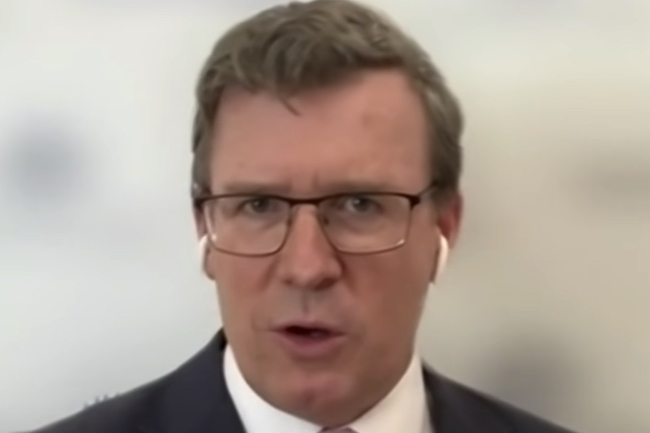Actions taken at lower levels to cover up alleged war crimes mean that no officer from the Australian military can be held legally responsible, writes Paul Taucher.
ON 19 NOVEMBER 2020, the Chief of the Defence Force, General Angus Campbell, spoke publicly about the Inspector General of the Australian Defence Force (IGDAF) Afghanistan Inquiry Report (“the report”). The report, which does not make any legal findings, has recommended that 19 Australian military personnel be referred for investigation for 39 unlawful killings of Afghani personnel.
The identities of individuals mentioned, as well as the circumstances of the reported crimes have been redacted, though footage of suspected unlawful killings has been aired on two occasions by the ABC. The 23 personnel recommended for criminal investigation are all enlisted soldiers and non-commissioned officers from the Australian special forces community. Both the report and General Taylor have attributed the suspected unlawful killings to a fundamental breakdown of culture within certain elements of the Australian special forces.
No officers, from the rank of lieutenant through to lieutenant-general, have been recommended to be investigated for criminal investigation. Nonetheless, the report has highlighted that commanding officers operated within a chain of command that allowed for war crimes to occur and hold some degree of moral, rather than legal, responsibility.
International humanitarian law, which includes the laws of war, can hold commanders criminally liable for actions committed by their subordinates under the doctrine of command responsibility. Commanders who know, or reasonably ought to know, that their subordinates have committed a war crime are required to ‘submit the matter to the competent authorities for investigation and prosecution’.
Australia has adopted this doctrine under the Commonwealth Criminal Code (s 268.115). The recommendation that several non-commissioned officers be subject to criminal investigation in the report is based on the doctrine of command responsibility. The fact that no officer, from lieutenant to lieutenant-general, has been recommended to face similar investigation requires explanation.
The report found that commanding officers at all levels of the Australian military were not in a position to know, or even become suspicious, that their subordinates were committing war crimes. Though special forces personnel record body camera footage during missions and are supported with a range of additional surveillance equipment, including drones, the report found that non-commissioned officers and support staff ensured that body camera footage was not made available to superior officers. The aerial drones which recorded missions were diverted to escape routes rather than recording the actual mission itself.
Furthermore, reporting on a mission would be delayed until a combat patrol returned to their base and the report finds this gave patrol leaders the opportunity to falsify reports, either by ensuring that every member could give the same story or to intimidate any patrol member who contemplated reporting an unlawful killing.
According to the report, the actions taken at lower levels to cover up alleged war crimes, as well as the natural trusting relationship between commanding officers and their subordinates, mean that no officer from the Australian military can be held legally responsible for the crimes committed.
Nonetheless, the report and General Angus Taylor apportion some degree of moral responsibility on commanding officers for the crimes committed. Principally, both the report and Taylor argue that the special forces community was allowed to deteriorate from a culture of responsible service to the nation to a culture that served the egos and personal aspirations of individual soldiers, especially non-commissioned officers, referred to as a “warrior culture”.
Non-commissioned officers who acted as the “boots on the ground” commanders of special forces missions were widely respected for their skills by both their subordinates and their superiors. According to the report, several of these non-commissioned officers used this respect to bully and intimidate subordinates and assert some degree of authority of their superior officers.
As well as cultural failings, the report found that commanding officers tolerated ill-discipline and under-reporting amongst the special forces community. Combat personnel from special forces would drink on missions, as well as heavily at their base, with lower standards of personal hygiene and standards of dress that would not normally be acceptable in the military.
Combat reports were accepted at face value and there was a general reluctance to question the accounts given by those on the ground. The report claims that while a relationship of trust and confidence is critical in maintaining unit integrity, commanding officers had prioritised this relationship over the requirement to scrutinise events, though not to a criminal extent.
In response to the report, Taylor has foreshadowed a number of changes to the chain of command in special forces. Though commanding officers do not appear to face a criminal investigation, they are likely to face administrative and disciplinary action. In this case, Taylor is applying a mitigated theory of command responsibility, where commanders are held responsible for the actions of their subordinates, just not necessarily to a criminal extent. It is highly likely that several commanding officers will be redeployed and some may have citations rescinded or, in extreme cases, possibly be demoted or even retired.
Paul Taucher is a PhD candidate and casual tutor at Murdoch University with undergraduate degrees in Law and History.
Related Articles
 This work is licensed under a Creative Commons Attribution-NonCommercial-NoDerivs 3.0 Australia License
This work is licensed under a Creative Commons Attribution-NonCommercial-NoDerivs 3.0 Australia License
Support independent journalism Subscribe to IA.














